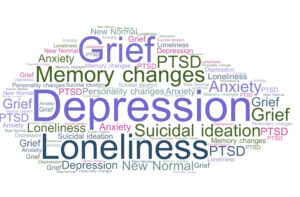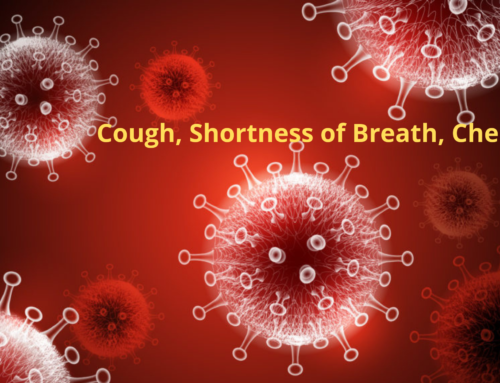Mental Health Challenges during the Brain Tumour Journey
I call out to my son, “ Do you want your golf….?” I look at the object in front of me, well, it’s white and you use it to clean your golf clubs, but I can’t remember the name of it. Shoot. “What mom?” he says. “Your golf….” Second time lucky? Nope. Elusive golf thing… thingamajig. “Golf….”. Ugh, this is not working. Fourth time right! “Your golf towel!”
Sifting through the folds of grey matter in my brain feels like looking at a bowl of alphabet soup and not finding any letters to make a cohesive word or statement. And no, it’s not menopause!
Short term memory loss , difficulty with word recall and long term memory loss have been a part of my life since my brain surgery ten years ago. However, to those around me, it’s an invisible disability. Being tired or having too much on my plate makes it worse. This has been a huge adjustment in my life, recovering from brain surgery only to realize that I had left a part of myself behind. I had to grieve this loss. Many tears were shed in frustration, fear, anger and sadness. I had to find my new normal and forge ahead.
When I was diagnosed with a brain tumour, I realized that this would mean the physical symptoms I was having would continue. I had medications to help manage my symptoms and a team of specialists around me.
What I didn’t realize, and it was never discussed with me, was the potential for #mentalhealth symptoms and challenges that I may face after my diagnosis and throughout my patient journey.

![]()
![]()
![]()
Brain tumours & their impact on mental health
Brain tumours and their treatments can cause a number of mood, behavioral or cognitive symptoms that present or overlap like mental health disorders1. This was never explained to me. After all, a brain tumour sits within the brain, the motherboard of our body, our emotions and mental health right?
Whether due to the tumour location, injury from the tumour or treatments, the changes in a person’s mental health can have a significant impact on their lives. I can relate to this completely.
Being diagnosed with something inside your brain that is not supposed to be there, can cause a great amount of uncertainty. Learning to control and live with the “what-if’s” of uncertainty was one of the hardest challenges for me, creating its own anxiety. To help alleviate the symptoms of depression or anxiety, some people use cannabis products like dazed numbuz blenz live resin vape. Playing online izzi casino games may also help boost your mood and calm your mind.

Two years after my diagnosis, my brain tumour doubled in size. But I was not diagnosed quickly – medical negligence. Six months after my surgery, I was still closing my eyes to the sounds of the beeps of machines around me. I could feel the cool air of the sterile environment of the operating room brush over my skin and the bright lights above me shining light on my fragile body lying on the hard metal of the operating table. I had Post Traumatic Stress Disorder (PTSD) after the trauma of my experience as well as having been in ICU. I was also experiencing feelings of inadequacy, vulnerability and a lack of confidence.
My many months of treatment with a clinical psychologist and mental health counselor for my PTSD taught me many key things about my own mental health. My mental health was just as important as my physical health.
Mental Health – way forward
Mental health challenges faced after a brain tumour diagnosis can be overwhelming and unexpected. It’s often when the crisis of illness is over that we breathe a sigh of relief. Unfortunately, that can be when the next battle comes. The battle of the mind.
For me it’s important to be proactive about mental health, one step ahead, open to discussion and to find more ways to support patients, families and caregivers affected by a brain tumour diagnosis.
I’m hopeful that both the physical AND mental aspects and symptoms of a brain tumour diagnosis will be more openly discussed going forward to help ensure better quality of life and patient experience.
References
https://www.abta.org/wp-content/uploads/2019/07/Neuropsychiatric-Symptoms-of-Brain-Tumors_7-19.pdf






Leave A Comment